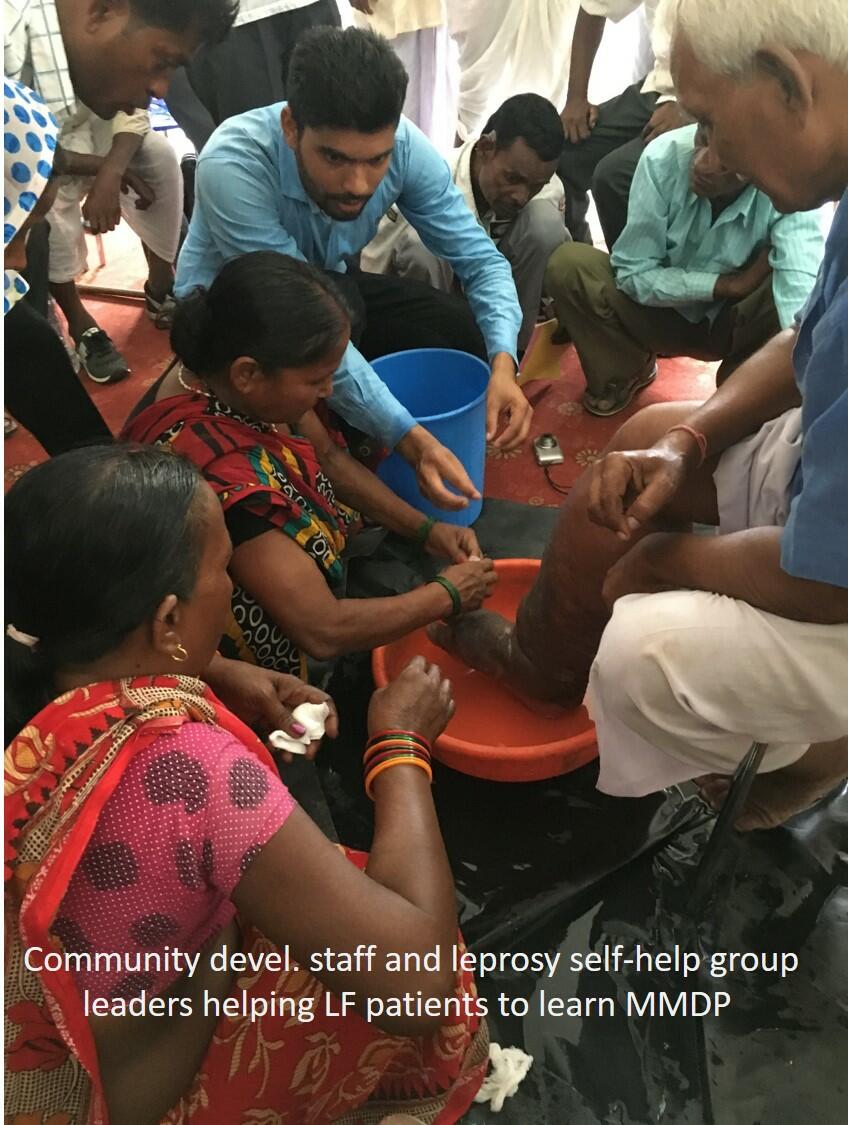
Last week saw members of LSTM’s Filarial programmes Support unit (FPSU) holding a workshop in Nepal to train staff to combat the growing number of cases of lymphatic filariasis.
FPSU’s Director, Professor Charles Mackenzie and Dr Louise Kelly-Hope travelled to the Lalgadh Leprosy Hospital and Service Centre (LLSC) in Janakpur, Nepal where they carried out the workshop over a week and was attended by 160 health professionals. Professor Mackenzie said: “One approach to reaching the increasingly evident number of cases of LF is to utilise the existing activities and facilities for patient care in place for other NTDs in co-endemic areas. This workshop at the LLSC was a major step towards bringing the partnership of leprosy and LF for patient care into reality.”
This was the first LF workshop to be held in a Leprosy Centre anywhere in the world, an idea conceived by Dr Hugh Cross, from the American Leprosy Mission (ALM), and led collaboratively with Mr Dambar Aley (Hospital Director/Nepal Leprosy Trust [NLT]) and Mr Ramesh Choudhary (CBR Officer/ Community Development Department/NLT). Support for the activity was provided by FPSU through funding from DfID-UKAID.
Attendees were made up of doctors, nurses, physiotherapists, community development workers, self-care trainers and self-help group facilitators along with personnel from the Epidemiology and Disease Control Division and Leprosy Control Division, Department of Health Services, the World Health Organization (WHO), and the Regional Health services attending and contributing. Dr Kelly-Hope FPSU and Professor Mackenzie (FPSU and Michigan State University) assisted the excellent local LLSC /NLT staff to instruct the attendees using "training of trainer” approaches and other formats to learn how to identify and report LF cases in their community using FPSU’s MeasureSMS-Morbidity tool. Using training materials prepared by FPSU’s Dr Hayley Mableson, the team also demonstrated limb washing, massage, preparation of footwear, and instructions on various other practical approaches needed to provide quality LF care.
The team found that one important feature of interacting with health workers and self-help group facilitators who work and live in the local areas, was the report of the presence of many more LF cases than originally thought, all of whom urgently need care. The workshop will allow these patients to be trained by self-help group facilitators in the community in lymphoedema self-care practices following detailed mapping of patients. Dr Kelly-Hope said: “the workshop was a great success and it is hoped that the integrated training model set up by this meeting can be repeated and expanded across other co-endemic areas around the world.”